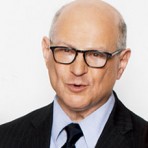Specialty
Larry Norton
Breast Cancer
Board-certified oncologist with broad interests in cancer prevention, diagnosis, and treatment.
Self Exam
- Occupation: Physician/Scientist
- Alternative career choice: Jazz Musician
- What do rock stars and scienctists have in common: Creativity/Dedication/Desire to serve a large audience
- Musical Instrument I Play: Too many to list. Currently chromatic harmonic and percussion.
- I tend to approach life: Energetically
- Biggest misconceptions about me or my work: Scientists are technicians not artists.
- Worst part-time job ever: Bus boy at a hamburger joint on Long Island (to make money for guitar lessons).
- Longest med school study session: Continuous!
- Best moment in medicine/research: Helping people every day.
About My Research
Disease Area: Breast Cancer
Research Area: Mathematics of growth and drug development.
Science Impact/Accomplishments or Goal: Many, I hope. The Norton-Simon Model of Tumor Growth and response to therapy is the best known.
Research Description: All of the above.
Biography
Larry Norton, MD, Member, Geoffrey Beene Cancer Research Center Executive Committee
I am a board-certified medical oncologist with broad interests in cancer prevention, diagnosis, and treatment. In my clinical practice I care for women with breast cancer, and I am now Deputy Physician-in-Chief for Breast Cancer Programs at Memorial Sloan-Kettering and Medical Director of the Evelyn H. Lauder Breast Center.
My research concerns the basic biology of cancer; the mathematics of tumor causation and growth; and the development of approaches to better diagnosis, prevention, and drug treatment of the disease. I am involved in many areas of research including identifying the genes that predispose people to cancer or that cause cancer, developing new drugs, monoclonal antibodies that target growth factor receptors, and vaccines. A major milestone in my research career was the development of an approach to therapy called “dose density,” or “sequential dose density.” This is a new and more effective way of using anticancer drugs, based on a mathematical model I developed with my colleagues, which maximizes the killing of cancer cells while minimizing toxicity. I am currently the principal investigator of a program project grant from the National Cancer Institute (NCI) that is aimed at better understanding breast cancer in the laboratory and in bringing these advances into clinical practice.
On a national level, I was formerly the Chair of the Breast Committee of the NCI’s Cancer and Leukemia Group B. I was President of the American Society of Clinical Oncology (ASCO) from 2001 to 2002, and was appointed by President Clinton to serve on the National Cancer Advisory Board (the board of directors of the NCI).
Among many awards over the course of my career, I was honored to receive ASCO’s highest honor, the David A. Karnofsky Award, and was McGuire Lecturer at the San Antonio Breast Cancer Symposium. I am an author of more than 350 articles and many book chapters, have served as a visiting professor throughout the United States, Canada, South America, Europe, Israel, and Asia, and also have trained many cancer doctors and researchers.


